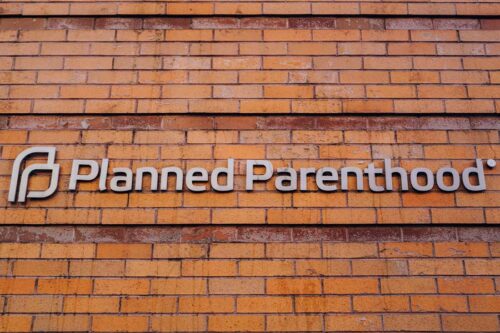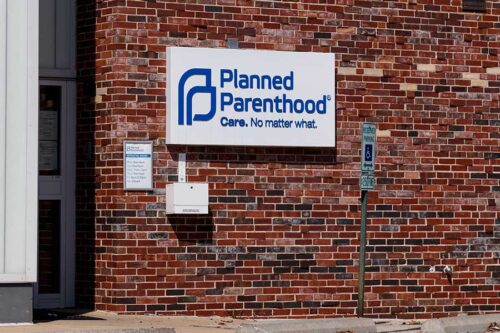
If there’s one thing that’s clear in the abortion debate, it’s that much can seem unclear. Arguments for and against abortion tend to revolve around definitions. When does life begin? What is a person? What does viability mean?
Definitions are powerful. They don’t just categorize and clarify; they advocate and argue. In other words, definitions are not neutral.
Consider H.L. Mencken’s famous definition of Puritanism—”the haunting fear that someone, somewhere, may be happy”—which only reinforced inaccurate conceptions of what the Puritans believed. Or the popular maxim of feminist activist Marie Shear that feminism “is the radical notion that women are people.” It’s a powerful line: who could deny that women are people?
Those of us in the pro-life movement must understand what we stand for. And that starts with defining the term “pro-life” itself. When we call ourselves “pro-life,” what are we saying? What does “pro-life” mean?
Merriam-Webster defines “pro-life” as “opposed to abortion.” While that much is true, it’s a narrow and simplistic definition. Let’s explore a more complete understanding of what it means to be pro-life.
Where did the term ‘pro-life’ come from?
Even before the U.S. Supreme Court decided Roe v. Wade in 1973, finding a supposed “right” to abortion in the Constitution, advocates were using “life” language in the abortion debate. In 1967, a group of doctors, lawyers, and others banded together to encourage California Gov. Ronald Reagan not to sign a pro-abortion bill. The advocates called themselves the Right to Life League.
The use of the term “pro-life” continued to grow during the 1970s as advocacy on behalf of the unborn became a major political force. In Before Roe v. Wade: Voices that Shaped the Abortion Debate Before the Supreme Court’s Ruling, Linda Greenhouse and Reva Siegel of Yale Law School write, “When conservatives of the New Right began to assemble a pan-Christian coalition against Roe in the late 1970s, the crusade against Roe would proceed under the banner of ‘pro-life’ and ‘pro-family.’”
The term has stuck.
Pro-life vs. pro-choice
People who support abortion-on-demand are often described in the media as “pro-choice.” It’s a convenient term: the word “choice” has few negative connotations, and identifying as for something engenders much more sympathy than being against something.
But “pro-choice” is simply not an accurate term for supporters of legalized abortion. First, the term fails to answer an important question: what choice? The answer, of course, is a woman’s choice to abort her unborn child. Planned Parenthood, America’s foremost “pro-choice” organization, defines the term this way: “When you say you’re pro-choice you’re telling people that you believe it’s OK for them to have the ability to choose abortion as an option for an unplanned pregnancy — even if you wouldn’t choose abortion for yourself.”
But there’s another problem with the term “pro-choice”: it treats abortion as the only choice available to women facing unplanned pregnancies or uncertain futures.
People who call themselves “pro-life” support choices too: parenting and adoption are choices not just accepted but championed by pro-life advocates. Pro-life organizations such as Heartbeat International have affiliates that are licensed adoption providers. Lifeline Children’s Services facilitates the adoption process both domestically and internationally. Others, like the Radiance Foundation, promote adoption through education and awareness campaigns. And many more, including the March for Life, celebrate National Adoption Awareness Month in November.
And what about “pro-choice” organizations? In 2019, Planned Parenthood, America’s largest abortion provider, performed 133 abortions for every one adoption referral. Does that sound like an organization dedicated to “choice”?
Ironically, it is the pro-life advocates who are truly “pro-choice.”
And that definition brings us to another question.
Does ‘pro-life’ just mean ‘pro-birth’?
A common complaint of pro-abortion activists is that people who are pro-life are merely “pro-birth.” In other words, their interest in protecting life extends only to life in the womb. But this argument is a strawman.
Research from the Charlotte Lozier Institute shows that in 2022, 2,750 pro-life pregnancy centers across the U.S. provided over $358 million in goods and services, including over 510,000 free ultrasounds and 700,000 free pregnancy tests. And the National Institute of Family and Life Advocates (NIFLA) is a network of pregnancy centers that “empower … women …. to choose life for their unborn children.” The network includes over 1,600 centers, including 1,200 licensed medical clinics.
Those organizations don’t just preserve the lives of unborn children; they provide mothers with diapers and baby outfits and offer them parenting classes and prenatal education programs.
As the facts about adoption providers and the statistics about pregnancy centers indicate, pro-life advocates care for more than just the unborn.
Is ‘pro-life’ anti-woman?
Another fallacious argument employed against pro-life advocates is that they are really “anti-woman.”
In 2020, the March for Life—the annual gathering of hundreds of thousands of pro-life advocates in Washington, D.C.—chose as its theme “Life Empowers: Pro-Life is Pro-Woman.” The March is held each year to mark Roe’s anniversary, but in 2020, it was commemorating another historical landmark: the 100th anniversary of the passage of the 19th Amendment, which guaranteed women the right to vote.
Language that characterizes pro-life advocacy as “anti-woman” often comes with a startling assumption: that women cannot be mothers and lead happy and successful lives. Of course, that conception is not only false; it’s also, ironically, anti-woman.
Furthermore, many of the pro-life laws Alliance Defending Freedom has defended have included provisions designed to protect and support women.
Consider Hodes & Nauser v. Kobach. In that case, Planned Parenthood and other abortion providers are challenging the Kansas Woman’s Right to Know Act. The law was passed by the state’s legislature to protect expectant mothers and includes a number of commonsense provisions.
For example, the law requires that abortion providers inform women seeking abortions about the risks of the procedure, the medical assistance available for prenatal and postnatal care, and the right to see an ultrasound of their child. It also includes a 24-hour waiting period to allow women to consider their options and not be pressured into undergoing an abortion.
Pregnant women deserve health and safety—and they don’t forfeit that protection when they consider having an abortion. But it’s not Planned Parenthood standing up for them; it’s pro-life advocates.
Pro-life for all of life
It is not just unborn children whose lives are in dire need of protection. Sadly, our culture often devalues the lives of the elderly and infirm as well.
In recent years, proponents of assisted suicide have sought to expand access to this deadly practice throughout the United States—and beyond. As in the abortion debate, activists use positive-sounding language to make their cause sound noble. “Assisted suicide” becomes “death with dignity.” But there’s nothing dignified about assisted suicide. The practice targets the vulnerable and the sick and harms those who need competent, compassionate care.
ADF is committed to fostering a culture of life where the dignity of all human beings is defended. The most vulnerable among us—from the unborn to the elderly and the terminally ill—are worthy of life and protection under the law.
Life should be protected from conception to natural death.






